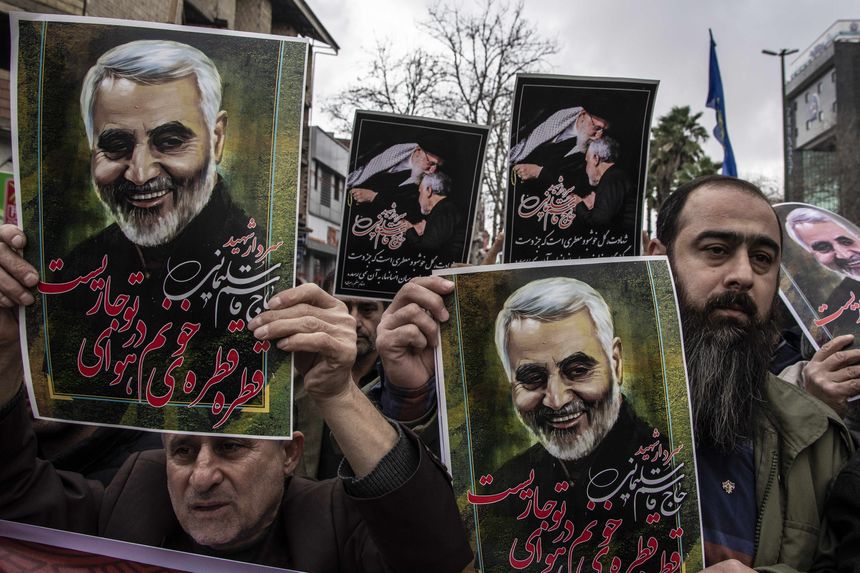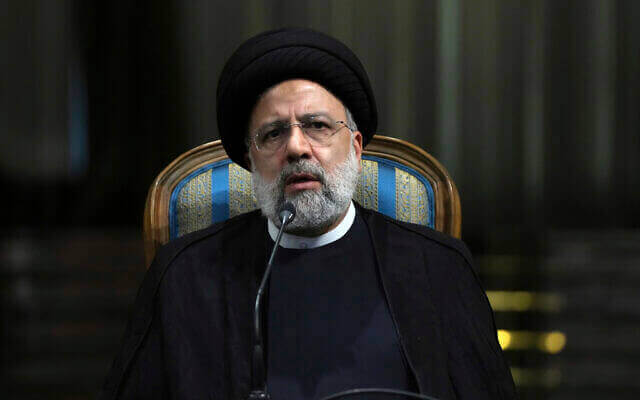Iranian officials on Tuesday vowed to avenge the 2020 assassination of Quds Force Gen. Qassem Soleimani, who was killed in a US drone strike.
STATEMENTS
Speaking on the third death anniversary of Soleimani, President Ebrahim Raisi stressed that “the promise of revenge is certain and we [Iran] will not let the murderers and perpetrators of this crime sleep easy.”
Praising the deceased General as a “martyr” of Islamic resistance, Raisi said, “He defeated the United States and the supporters of the terrorist movement and ISIS in the region, but his greatest work was to defeat the American hegemony in the world.”
The cowardly assassination of Gen. Soleimani failed miserably in brining the US its desired outcome: Iran continues to play a decisive role; US’ footprint in West Asia continues to diminish; & US-designed terrorism plot in our region has failed. #selfless pic.twitter.com/dbyDooFStL
— Iran Foreign Ministry 🇮🇷 (@IRIMFA_EN) January 3, 2023
Calling Soleimani’s assassination a “heinous act contrary to international law,” Foreign Minister Hossein Amirabdollahian said in an Instagram post on Tuesday that the Iranian Ministry of Foreign Affairs and the Judiciary are “seriously pursuing” bringing those responsible for Soleimani’s death to justice.
A day earlier, Amirabdollahian said that Tehran is cooperating with the Iraqi government in this regard. He noted that the two countries have held three rounds of talks and plan to hold a fourth next week to discuss the way forward.
SOLEIMANI’S ASSASSINATION

In January 2020, a US drone strike killed Soleimani and Abu Mahdi al-Muhandis, the deputy commander of the Iran-backed militias in Iraq, collectively known as the Popular Mobilisation Forces (PMF). The attack happened near Baghdad International Airport. The Pentagon had said that Soleimani was killed because he was plotting to attack American diplomats and service members in Iraq.
The US holds the Soleimani-led Quds Force — an elite unit under the Islamic Revolutionary Guards Corps — responsible for the deaths of hundreds of American coalition service members in Iraq.
President Raisi: "Martyr #Soleimani defeated the United States and the supporters of the terrorist movement and #ISIS in the region, but his greatest work was to defeat the American hegemony in the world". pic.twitter.com/tHRiLYgxp4
— Government of the Islamic Republic of Iran (@Iran_GOV) January 3, 2023
Soleimani reported to the Iranian Supreme Leader Ayatollah Ali Khamenei and was widely recognised as the head of Iran’s expanding ambitions in the Middle East. Under his watch, Iran conducted proxy wars in Iraq, Syria and Yemen.
Iran backs Bashar al-Assad in the Syrian civil war by arming the Shia Muslim fighters, supports a Shia-dominated paramilitary force against the Islamic State in Iraq and holds considerable sway over Hezbollah in Lebanon. Additionally, Iran has reportedly provided Yemen’s Houthi rebels with arms and money. Saudi Arabia and other US allies in the Gulf have been engaged in war with the Houthis since 2015.
IRAN’S REACTION
Immediately following Soleimani’s death, then Foreign Minister Mohammad Javad Zarif called the drone strike “an act of international terrorism,” saying the US made an “extremely dangerous and foolish escalation.” Supreme Leader Khamenei, who wept at Soleimani’s funeral, has repeatedly called for revenge.
In 2021, Iran imposed sanctions against prominent US officials, including former President Donald Trump, former CIA directors Mike Pompeo and Gina Haspel, former US National Security Advisor (NSA) John Bolton, and former Defence Secretary Mark Esper for their respective roles in Soleimani’s assassination.
The following year, Iran sanctioned 52 Americans, including Chairman of the Joint Chiefs of Staff Mark Milley, former NSA Robert O’Brien, and Central Command chief Gen. Frank McKenzie.

